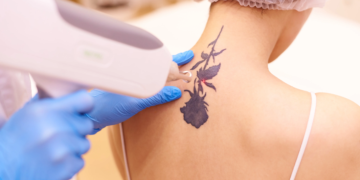There’s no doubt that abortion remains a taboo subject for many but it really shouldn’t be – it’s estimated by the University of Oxford that 1 in 3 women in the UK will have an abortion in their life. In this article we take a look at abortion aftercare, an essential aspect of pregnancy termination that is often overlooked and not often spoken about, but is by no means unimportant.
Whether you are considering opting for the abortion pill online, medical abortion or a surgical abortion, aftercare and recovery is an incredibly important part of the process. Below we take a look at medical recommendations for after care:
Abortion aftercare: The essentials
Knowing what to expect and side effects
There is no doubt that pregnancy termination is an emotionally and physically challenging procedure. Thankfully, ensuring you are familiar with the process, what to expect, and what is a cause for concern can help to allay concerns and put your mind at ease. Abortion is a reasonably safe procedure although this risk does increase the later in pregnancy the termination is carried out. As with any medical procedure there is still risk of complications that require further medical intervention.
Normal side effects of medical abortion pills include nausea, vomiting, diarrhoea and short-lived fever and chills. These side effects usually only last for around 24 hours. Bleeding can occur for between 9 and 45 days.
We suggest ensuring you’re familiar with symptoms of more serious complications. After an abortion you should be keeping a watchful eye for:
- Dizziness that do not improve within 24 hours
- Excessive pain that do not improve within 24 hours
- Fever and chills that do not improve within 24 hours
- Unusual discharge outside of what your medical professional has told you to expect
- Very heavy bleeding by which we mean soaking through nine sanitary towels in 6 hours or more
Some private abortion clinics will provide you with the contact details of one of their doctors so that you can get in touch with any questions you may have. However, if you are really concerned or you have any of the symptoms listed in the bullet points above, you should seek emergency services as soon as possible.

Avoid using tampons
Most women will experience some bleeding when having an abortion (amounts vary widely between individuals and depending on how far along the pregnancy is) and will need a way to soak up the blood. Rather than using tampons, your medical professional will recommend using sanitary towels instead. This is to help reduce the risk of infection. You should not clean inside (douche) the vagina as the body will naturally expel blood and tissue. Cleaning inside can adjust the delicate pH balance of the vagina, increase risk of infection, and could contribute to complications.
Rest up
Rest is an important but often overlooked aspect of recovering from a pregnancy termination. Your body will go through a lot physically and rest is a really vital way of helping the body recover. Try to get as much sleep and rest as you can during the process.
Use those painkillers
Your chosen abortion clinic will provide you with painkillers – usually paracetamol or similar – to be taken to help manage any pain you experience during and after the procedure. They will talk you through how many to take and how often they should be taken.
Contraception and sex after abortion
You may not be ready to think about sex after abortion but it’s important to understand what you should and should not do anyway. If you have a medical abortion you should avoid sex until the bleeding has stopped and should also consider whether you feel ready to take that step. For women having a surgical abortion the advice is slightly different and it is recommended not to have sex for between two and three weeks after the procedure and until any bleeding has stopped. For both types of abortion, the reason for this is to try to prevent any infections.
Your consultants or medical professional will usually discuss contraception with you and will likely recommend starting this as soon as your medical abortion procedure has been completed to prevent unwanted pregnancies in the future.
Travelling after abortion
Unwanted pregnancy doesn’t always come at a convenient time. It is recommended that women who have had an abortion do not travel for approximately two weeks after their abortion or until it is confirmed that they are no longer pregnant. Why is this? There is a risk of bleeding that may require emergency care if not all of the pregnancy tissue has been expelled from the body and so it is important to confirm this with an ultrasound or pregnancy test provided by your abortion care provider.
Support for during and after pregnancy termination
As mentioned, terminating a pregnancy can be both emotionally and physically challenging. Here are some additional steps you can take to make yourself more comfortable and give yourself the support you need during this difficult time.
- Hot water bottle: Alongside painkillers, heat can be a really helpful tool for managing the cramps that occur during an abortion. You may like to make use of heat packs or a hot water bottle to soothe the pains.
- Consider your location: It is recommended that once you’ve taken both medical abortion pills or after your surgical abortion procedure you spend a few days in the comfort of your own home in a private, safe space. Being at home is also practical, giving you easy access to a bathroom.
- Support system: Making the decision to have an abortion can be very difficult. It can really help to have a trusted friend or family member keep you company during your medical abortion, and to support you after surgical abortion. After all, just because the treatment has worked doesn’t mean you don’t need emotional support.

Abortion and making the right choice for you
For such a common procedure abortion is not widely written about or spoken about and it’s time to change that. Whichever type of abortion procedure you choose to have, we hope that the information above has answered any questions you may have and put your mind at ease. Having an abortion is your choice and your choice only your chosen clinic should support you from the get-go.













